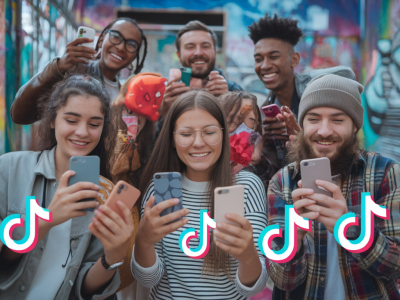
When I first started exploring productivity tools a few years back, Notion was just one among many. Now? It’s impossible to ignore. What began as a sleek, minimalist platform for note-taking and document collaboration has evolved into a full-blown lifestyle brand—and yes, that’s as surprising in the B2B world as it sounds.
As a marketer, I’ve always been fascinated with how some companies break through the noise. But what Notion has done goes beyond good design and smart UX. They’ve successfully taken a software tool, traditionally marketed to teams and businesses, and infused it with the kind of cultural relevance normally reserved for brands in fashion and entertainment. Let me walk you through why this matters, how they’ve done it, and what we — as marketers — can learn from this game-changing brand strategy.
Notion didn’t just brand a product—they defined an aesthetic
When you land on Notion’s website or scroll through their social media, you don’t just see a product—you experience a vibe. Their trademark monochrome color palette, crisp typography, and delicate line-drawn illustrations feel more like the design language of an artisanal coffee brand than a workplace productivity platform. But this was no accident. Notion understood something crucial: visual identity isn't just presentation—it’s emotional positioning.
They designed everything to look intentional, calming, even aspirational. In doing so, they’ve positioned Notion not merely as a tool you use but as a manifestation of how you want your life and work to feel—balanced, organized, and intentional. How many other SaaS platforms can say the same?
The rise of community-led marketing
Notion didn’t build a fanbase. They nurtured a movement. Instead of relying solely on paid advertising or traditional B2B lead generation, Notion leaned into community-led growth. They empowered users—especially creators, students, and digital entrepreneurs—to play with the platform, build templates, and share their workflows organically.
This user empowerment strategy did two things:
- It made users feel like co-creators, not just consumers.
- It ignited content that felt authentic, not promotional.
I’ve scrolled through countless YouTube channels, Notion-focused TikToks, and Reddit threads from users enthusiastically showing “how I organize my life with Notion.” This kind of content doesn’t just advertise a product—it creates a cultural phenomenon. Notion simply provided the blank canvas; their users added the lifestyle narrative.
Strategic partnerships and influencer collaboration
In a traditional B2B context, partnering with influencers might seem out of place. Yet Notion strategically collaborated with content creators who weren’t necessarily tech reviewers but productivity enthusiasts, creatives, and startup founders who aligned with their ethos.
One of the most brilliant moves was giving these creators early access to new features or exclusive template kits. When creators feel part of a brand’s core journey, the resulting content is more meaningful, and the trust it commands is invaluable. I've personally seen influencers craft entire life-systems within Notion and share their dashboards like they’re showing off a new Chanel bag—it resonates because it's both functional and aspirational.
Product as content, content as product
Notion blurred the line between product and content. Their template gallery is, in itself, a brilliant piece of content marketing. Each template tells a story: planning your week, launching a startup, tracking your fitness—all wrapped in that signature Notion aesthetic. But beyond that, it invites user interaction and gives value instantly.
This approach transforms their site into a destination, not just a SaaS login screen. When you explore Notion’s resources, it doesn’t feel like a knowledge base—it feels like exploring Pinterest for your digital life. That’s a massive leap from the utility feel of most B2B tools.
Organic word-of-mouth as a growth engine
This might sound counterintuitive, but Notion’s organic growth almost makes their branding feel *anti-marketing*. They’re not screaming features or ROI metrics. Instead, they’ve let the community do the talking. People love sharing tips, templates, and stories about how Notion changed their workflow. And because the product is flexible and personal, every user has a unique experience worth sharing.
And that’s the magic: they turned use cases into narratives, features into freedom. In some sense, Notion’s best marketing isn’t being done by Notion itself—it’s being done by users who feel like the tool improves their life. The brand becomes a background presence that supports self-expression and identity.
Minimalism as a brand value, not just a design choice
We’ve talked about visual minimalism, but there’s also something deeper: this ethos spills into everything Notion does. From their communications to their feature updates, everything is clear, concise, and elegant. Their blog doesn’t overwhelm you. Their onboarding process is gentle. Their “what's new” updates feel like thoughtful letters, not corporate blurbs.
In a world where digital overwhelm is a serious issue, Notion’s subtle presentation becomes a strategic differentiator. They’re not selling productivity—they’re selling peace. And they’re doing so in an ecosystem where most platforms feel like dashboards on steroids.
So what can we learn from Notion?
If you’re marketing a B2B product, this case study should shatter a few reservations. Here are some key takeaways I believe every brand—B2B or otherwise—should consider:
- Design for emotion as much as for function. A minimalist interface that sparks calm can be more powerful than a feature-packed UI that causes cognitive overload.
- Make users the heroes of your story. Empower them to share, create, and interact. Don’t just talk at your audience—build with them.
- Rethink traditional launches. Give creators and early adopters something to share, something to be proud of. This builds organic hype in a way no press release ever could.
- Align your brand with a lifestyle, not just a job. Notion understood that its users weren’t just looking for productivity—they were aspiring toward a better, more organized version of themselves.
As someone who’s worked in and around marketing for years, I genuinely believe Notion is redefining what’s possible in the B2B world. They're proving that software, even in the most practical sectors, can inspire, connect, and captivate like any lifestyle brand.
If that’s not the future of marketing, I’m not sure what is.

